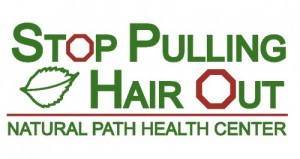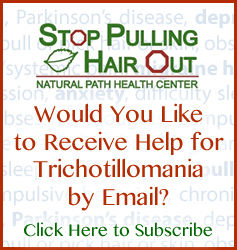The underlying neurotransmitter imbalances that often lead to the urges to pull or pick in those with trichotillomania are very often also the underlying reason many people crave sugar and sweets.
Without getting too far into the biochemistry of it, the basic process goes something like this: the neurotransmitters serotonin and norepinephrine are involved in controlling your mood, as well as the appetite center of your brain. When your body senses that it doesn’t have enough serotonin, it tries to make more. In order to increase serotonin levels in the brain, your body needs more of the amino acid tryptophan, the major precursor of serotonin.
Tryptophan competes with other amino acids for entry into the brain. Unfortunately, compared to other amino acids, tryptophan is present in very low levels in most foods. This means that under normal conditions, the amount of tryptophan that gets into the brain is very low.
However, the body has a remarkable way of getting around this obstacle. When you eat sweets or carbohydrate-rich foods, high amounts of insulin are released, accelerating the removal of sugar and amino acids other than tryptophan from the blood, leaving larger amounts of tryptophan to be transported to the brain to make more serotonin. This makes the brain happy again and you experience short-term relaxation, calmness and satisfaction–which provide further positive reinforcement for eating sweets and carbohydrate-rich foods. As a result, people frequently consume carbohydrates rather than other foods in order to subconsciously enhance tryptophan uptake into the brain and achieve “feel good” levels of serotonin. This is wonderful until the effect wears off and the cycle starts all over again–a reaction that can happen in a matter of minutes. The process is a double-edged sword; you feel good after eating carbohydrates, but it makes you crave more, often leading to weight gain, self-loathing and feeling out of control. Unfortunately, this process will continue until your body’s neurotransmitters levels are balanced.
As anyone with trichotillomania can attest, willpower is no match for brain chemistry–over time, your “will” weakens and you will crave the very foods that cause you to gain weight and feel out of control, just like you cannot simply tell yourself “not to pull” and expect not to do so over the long-haul.
Luckily, the way to eliminate your urges to pull is the same way that you can eliminate your sugar cravings; that way is targeted amino acid therapy. When you’re ready to regain control, please contact us.



Help to finally combat trichotolomania
Hi Lisa – I’m glad you enjoyed the article and found it useful. If we can be of further service, please don’t hesitate to contact us!
Sincerely,
Dr. Chad
I have suffered from trich since 1977.
I have been pull free for almost nine month except for two occasions.
Both instances occurred after I had too much too drink.
It made me realize that this disorder is related to blood sugar somehow.
I have also changed my diet to zero carbs …. ketogenic / atkins and think this has contributed to my success
Thanks for your comment/observation Benjamin; blood sugar can certainly affect neurotransmitter balance and the urge to pull. In addition, alcohol consumption causes several disruptions in neurotransmitter balance that can last up to 5 days after just one night of drinking; this could also increase your urges to pull during that time.
I’m glad to hear you are doing well!
Sincerely,
Dr. Chad